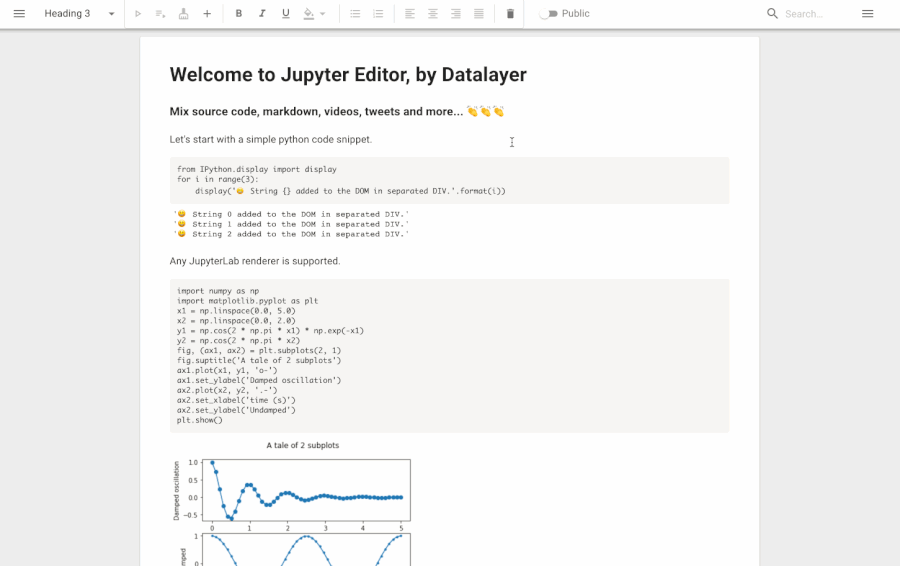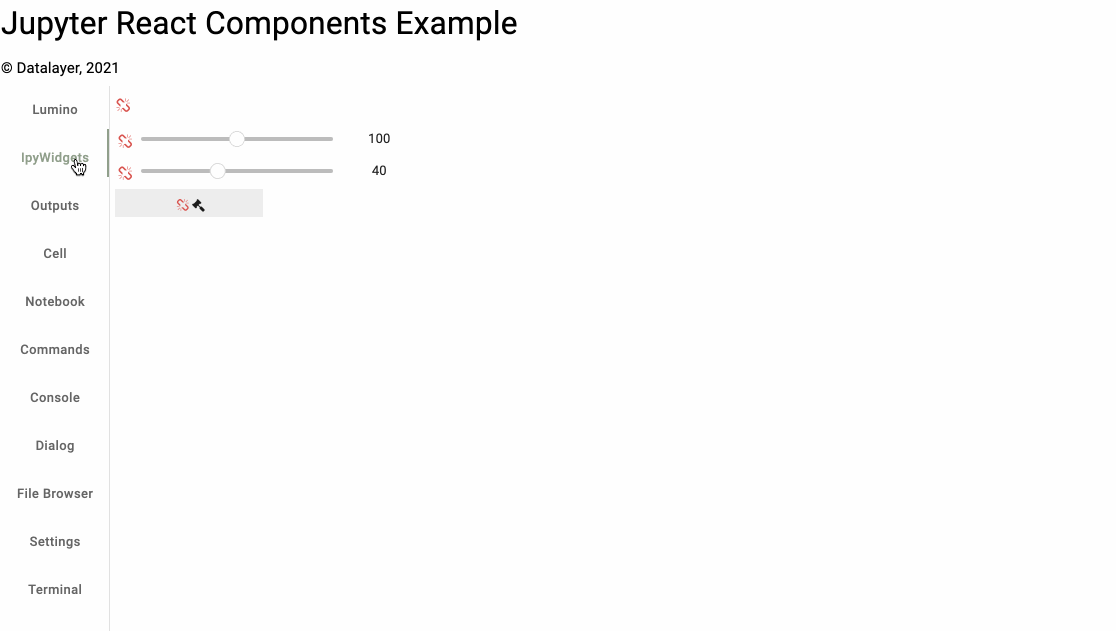⚛️ React.js components to create data products compatible with the Jupyter ecosystem.
You can create a custom data product a-la-google-docs as shown above. The below image shows a gallery of the available React.js components you ready to be used in you custom React.js application.
Install the latest @datalayer/jupyter-react npm package and get inspired by the examples in this repository. You can also reuse examples from this separated jupyter-examples repository.
This library can be used to extend exsiting solutions. For example, we maintain an extension to Docusaurus in the jupyter-docusaurus repository.
The typedoc documentation is available online.
Please open issues for questions, feature requests, bug reports... We also welcome pull requests.
Abstract from the talk given at FOSDEM 2022. You can find more details on https://fosdem.org/2022/schedule/event/lt_jupyter (direct link to the video recording http://bofh.nikhef.nl/events/FOSDEM/2022/L.lightningtalks/lt_jupyter.webm).
Jupyter notebook is a tool that allows Data Scientist to analyse dataset. However, it is not easy to create a custom user interface integrated in an existing application.
Jupyter React, https://github.com/datalayer/jupyter-react, an open-source library, fills that gap and provides components that a developer can easily integrate in any React.js application.
The Jupyter user interface stack is built on top of Lumino, which is an imperative way to build user interface and can not be consumed by industry standard declarative frameworks like React.js.
As a user interface developer, if you want to create a custom data product on top of Jupyter, you have to stick to Lumino and update the existing notebook interface. This is not what you want. You want your toolkit (like React.js) and you want to integrate on a component basis the Jupyter functionality in your applicatio
Follow the below steps to create your development environment. You will need Miniconda up-and-running on your machine (MacOS or Linux, Windows is not supported as development platform for the time-being).
# Clone this repository.
git clone https://github.com/datalayer/jupyter-react.git && \
cd jupyter-react# Setup your development environment.
conda deactivate && \
make env-rm # If you want to reset your environment.
make env && \
conda activate jupyter-react# Clean, install and build.
make clean install buildYou can launch an example and hack the source code. The changes will build automatically and will be available in your browser.
# Start the example.
echo open http://localhost:3208
yarn startCopyright (c) 2022 Datalayer, Inc.
Released under the terms of the MIT license (see LICENSE).


